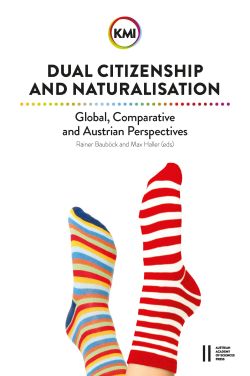
Dual Citizenship and Naturalisation. Global, Comparative and Austrian Perspectives, pp. 253-274, 2021/05/05
Global, Comparative and Austrian Perspectives

This paper addresses the question of whether or not naturalisation promotes the integration of immigrants. The empirical basis for the study is a standardised survey comprising 600 immigrants from Turkey and the former Yugoslavia living in Austria. We investigate the differences in four aspects of (social) integration: structural integration (access to the labour market), social integration (the building-up of social relations with members of the host society), cultural integration (acquiring German-language skills and support for modern gender-role attitudes) and identificative integration (strengthening the feeling of belonging to Austria). Our hypothesis is that the attainment of citizenship supports all of these. Immigrants who became Austrian citizens are compared with those who did not – across indicators of all four aspects of integration. In multivariate regression analyses, we also include migration experience (migration background and generation as well as the length of stay in Austria) as explanatory and socio-demographic characteristics (gender, age, educational level) as control variables. The findings show the expected effects in most regards. In addition, a significant interaction effect emerges between migration background and gender, whereby Turkish women have fewer chances of finding employment than ex-Yugoslavian women in comparison with men of the same nationalities as the women. In the conclusion, we point out the methodological limitations of the study and indicate avenues for further research, both in theoretical terms and concerning empirical research designs.